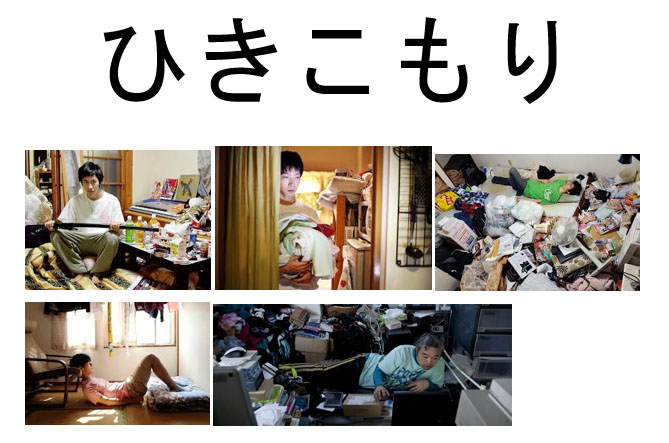Why are Millennials so Angry? Why? Why not?

Intergenerational conflict must be as old as humanity: the parent disappointed because the child does not grow up to be a replica of him / her, or destroys the dream of the parent by turning into an unrecognizable creature. “He has decided to be a folk singer in coffee houses instead of going to dental school, like his Uncle Charlie, who drives a Jaguar.” Boo hoo. (He’s dreaming of ending up like “Shabtai Zisel ben Avraham” – oh, excuse me, rugged Aryan poetic Irish “Bob Dylan” – rich and famous. Fat chance fella.)

Through thousands of years of human history, before prosperity and mass education signified mobility of the masses, you pretty much did what was in your family: granddad was a dirt farmer who never went to school, ditto for Dad in his shit-kicking boots and leathery face; you don’t have much choice either, and are pretty much looking at becoming a farmboy yourself, even with your sixth-grade education. No choice. Society was fixed. You grew up in a clan of Hasidic diamond-cutters or Flemish vegetable merchants or New England shipwrights or cutthroat Arab pirates, and you started off helping out while still a kid.
That all changed when sufficient prosperity in western countries signified a world of fresh choices for a twenty-year-old. He or she would have to seize the opportunity and be lucky enough not to enter the job market in 1933, smack in the midst of the Great Depression, or 1942, when he’d be drafted to go fight (& die) for Il Duce or Imp Hirohito or whoever.
The Twentieth Century had enough excitement for everybody, and the last half, following the defeat of the Axis Powers, was a time of great prosperity, for the losers as well as the victors. (Don’t believe me? Look at life in Germany today vs. the U.K.).

Most of all it was Good Times for the USA, which never got invaded or bombed. It was the Age of the Boomers. Some, like P.J. O’Rourke, think they did a great job. Well let’s see now: greedy and self-centered beyond belief, they used up all the good stuff, had a great time waging war on brown people everywhere, ran the economy into the ground ($23 trillion in the hole and still counting, madly), fucked the environment royally (super-pollution on all fronts, radioactive biosphere, a sea of plastic everywhere) and have now left the kids holding the bag: no jobs (all off-shored to China and India, sorry), no savings (but plenty of college debt), no hope (just dope), and, in the immortal words of the all-too-mortal Sex Pistols, NO FUTURE.
Now just how does this relate to intergenerational relations in Asia? It’s different, natch. Different but similar in many ways. Just like you still see in ethnic Chinese everything-stores in the outlying regions of Indonesia, where Dad sources products, Mama tends the kids and is nice to customers and grandma keeps her beady old eyes on the money-box. What’s an “everything-store”, you ask? Go to some small town in South Sumatra or Central Kalimantan and there may be at most a couple of “general stores”, selling mosquito nets canned foods fishing tackle shoes OTC medicines sunglasses kerosene lamps electrical generators cans of biscuits yadda yadda. More often than not such an emporium is run by a prominent Indonesian-Chinese family and has been handed down from generation to generation. At least until the 1980s, when prosperity began to wake up the economy – at that point a chosen child (almost always a son, alas, as female children were still pretty much discounted) was sent to study in Australia or Canada. This quickly bloomed into today’s prominent business empires like Indo-Everything or Sritex, both of which grew from humble roots.
Indonesian children, like most Asians, do not tend to be rebellious or disobedient – at least to the extent you find in the west, where kids will escape parental control as early as possible and move as far as possible from family surveillance – and conflicts.
“Boss, would you consider transferring me to the Los Angeles office?”
“Why would you want to move now, Willy? You’re doing a great job right here in Boston.”

“I need to get away from my mother. She won’t stop riding my wife, without mercy, when Cyndy can take it no longer – then that flares up with the two of them screaming at each other about food or cleaning the house – or raising the kids or money – whatever. I’m in the middle. If I can put several thousand miles between us, we’ll turn into a loving family again.”
Frowns. “I know the feeling. Monster-in-law madness. My parents were disappointed in me when I didn’t go into the military like the rest of the family, and get my ass shot off in some war for Wall Street or the oil companies.

“I’ll see what I can do about that transfer.”
It’s an old, familiar song: children are just as disappointed in their parents as Mommy and Daddy are disappointed in them. As kids grow up and see that the adults they once idolized are just imperfect, often selfish and uncaring, people anyway. With around fifty percent of marriages ending in divorce in western countries kids are raised by single-parent families (and deadbeat dark-skinned dads often slip away and never pay child support).

Children born from unmarried parents are more likely to be trapped in poverty.
But once there was hope. Then the Boomer Generation came along and raided the store.
First though – who are the “Millennials”?

In short (thanks to Quora):
- Veterans1925–45 (named after surviving WWI and WWII)
- Baby Boomers1946–65 (named after the great number of babies born after the world wars)
- Generation X 1965–81 (X as unknown)
- Millennials(because they came of age around the turn of the Millennium) a.k.a. Generation Y 1982–1995 (named because it comes after X) and Generation Z 1996–2007 (named as it follows Y)
- Alphasborn after 2008 (named so as in science disciplines, such as meteorology, often move to the Greek alphabet after exhausting the Roman alphabet or Arabic numerals.)
One word that has been thrown around pretty loosely over the last decade or so is ‘millennials.’ This word can sometimes be accompanied by thoughts of savvy, dynamic, futuristic kids with heads facing 80% of the time downwards, browsing through social media, with no recollection of a world without smartphones.

Some others imagine this generation in a more positive light, as the younger generations born with a native ability to understand digital technology and are better able to integrate it, more intuitively and quickly, into their jobs.
This ability, in the world in which we live, is a crucial aspect that differentiates millennials among older workers. But the question of who exactly is a millennial, what are their age groups, and what are their characteristics comes to the fore. Read on to find out what is the real millennial definition.
What is the millennial generation?
Although ‘Millennial’ is the name given to the generation born around the turn of the millennium, its meaning is one with different ideas on who exactly belongs in this generation.
An analysis by Pew Research Center mentions the historical, economic, and technological milestones that define millennials as those born between 1981 and 1996.
Apparently being a Millennial isn’t that much fun.

Many twenty-somethings today, working three jobs just to survive (and pay astronomical rent) simply feel burnt-out. The world has become too much for them. Why are they angry? Why are they sad? For good reason.

While the War on Terror was wrapping up, we suffered the Great Recession of 2008. Many Millennials still have not recovered and may never fully do so. But, ultimately, the Recession was just the symptom of a much deeper problem. Over the last few decades, the ideal of economic security broke down in the name of securing greater economic efficiency and adaptability. Jobs became more precarious; home ownership became a pie in the sky ideal, security an anachronism, and the notion that you would be rewarded for working hard looked ever more like an empty platitude. In an ironic display of the “PC culture” so berated by right-wing pundits, most of these realities were justified using the most superficially innocuous but ultimately frightening language. Firing people en masse for the crime of being expendable became “restructuring.” Getting rid of permanent positions for short-term contract work became “flexibility.” Losing your job to a machine became “technological automation.” The figures who insisted that all of this was good and necessary not only had no idea a crisis was coming (and may be coming again due to the coronavirus), but they also uniformly lacked the courage to talk about the calamitous effect these changes would have on many.

It has become fashionable to sneer at the Millennials as “entitled, spoiled, expecting too much” but they have their frustrations as well:

It’s different in most of Asia, since economies are still booming, largely from offshored western business – no shoes are made in America, no TV sets, fewer and fewer computers and electronics – and Chinese Millennials are eager, ambitious, competitive and largely optimistic about their careers (if quietly cynical about politics – few respect the Communist Party, seeing it as feudal, greedy and corrupt).
Once the Chinese economy stalls and goes into freefall the Millennials there may become as gloomy and insecure as those in the west. But at least they won’t turn into agoraphobic hermits, hiding away in their rooms and playing computer games obsessively all the long day long:

Ah, Japan. Always something new, weird and extreme:
Wikipedia: In Japan, hikikomori (Japanese: ひきこもり or 引きこもり, lit. “pulling inward, being confined”, i.e., “acute social withdrawal“; colloquially/adaptive translation: shut-in) are reclusive adolescents or adults who withdraw from society and seek extreme degrees of isolation and confinement.[1] Hikikomori refers to both the phenomenon in general and the recluses themselves. Hikikomori have been described as loners or “modern-day hermits“.[2] Estimates suggest that half a million Japanese youths have become social recluses,[3] as well as more than half a million middle-aged individuals.[4]
OK, admittedly they are not all Millennials, but it seems to be a similar phenomenon, in that individuals unable to find a productive rôle in society reject society in turn.
Psychiatrist Saitô Tamaki put it this way:
“Hikikomori are defined as having spent six months or more not participating in society—without mental illness being the main cause,” he explained. In many of the cases where the media have referred to perpetrators as hikikomori, they were found to have a mental disorder and thus did not fit the definition. Saitō emphasized that the word hikikomori describes a state rather than an illness, and that the people in this state perform very little criminal activity.
Saitō sees hikikomori as decent people who happen to find themselves in a difficult situation. Japanese society has many problems, such as the lack of regular jobs, the steady rise in the average age of the population, and the trouble people have getting back into the labor force after having been forced to quit work to look after aged parents. One has to say it is not an easy society to live in.
“There’s still a lack of respect for individuals,” Saitō commented. “People who aren’t useful to society or their family are seen as having no value. When hikikomori hear the government’s rhetoric about promoting ‘the dynamic engagement of all citizens,’ they’re liable to take it to mean that their inability to be ‘dynamically engaged’ makes them worthless. This drives them into a mental corner.”
Losing Contact with Society
While many become hikikomori due to bullying or harassment from teachers, it is highly rare for the cause to be abuse or post-traumatic stress disorder. Once someone has entered the “hikikomori system” over the longer term, they fall into a vicious cycle, which Saitō expressed with the diagrams below. Ordinarily individuals, the family, and society are connected, but when people withdraw from society, they lose these points of contact, and their family also gradually becomes detached from society due to a sense of shame. As the situation drags on, it becomes difficult for people to return to participation in the wider world just through their own efforts. This has been described as the “80-50 problem,” whereby both elderly parents and their middle-aged children find themselves isolated.

So what has become of Japan’s famed security-guaranteed “lifetime employment” society? The same fate as in North America, where “career” in the contemporary scene more and more becomes “project employment”: three or nine or six months at a time, with no health care or other benefits, no chance for permanent status, and they can let you go at their leisure at the end of every contract, thanks very much. Who wouldn’t be bitter after five years of college and $250,000 worth of college loans to pay back, to find themselves working like hired hands?
And the outlook? Wow, you think you have problems:
The Next Recession Will Destroy Millennials
Millennials are already in debt and without savings. After the next downturn, they’ll be in even bigger trouble.
Makes some pretty gloomy reading, particularly if you are one of them. Young, educated Indonesians are discovering this the hard way. How many have you met earning a living as Grab-Bike drivers, or fast food sellers?

So why not invite a pack of your favorite Millennials to a nice big alcohol-wavy meal at Ya Udah Bistro, dear blog reader? You may have to kidnap their cell phones, so they don’t keep their faces buried in them during the meal (table manners and social graces are not a strong Millennial point, alas). But the Bistro features good times, with freshly-made Euro-Asian meats, salads, pasta and fish, washed down with fine beer or not-so-fine but pleasant (and amazingly-low-priced!) red, white or rose wine. Give us a shot, either in the classic Menteng location or our new ritzy branch in trendy Serpong.
And if you happen to be locked down because of a “certain inconvenience” …

… then just jump on that keyboard or screw your ear to that cell phone and order from the famed Ya Udah Bistro TakeAway Menu.
Thanks for reading our blog, Dawg. See you at the Bistro.



